Social housing developers can benefit from new laws
Even when the Vietnamese government approved the scheme to build at least one million social houses for low-income persons and workers in industrial parks (IPs) before 2030, together with a stimulus package of VND120 trillion ($4.8 billion), it seemed that there have not been many active moves from the foreign side. The paradox is that social housing is the only type of real estate when demand outnumbers supply, no matter how strong or weak the real estate market is.
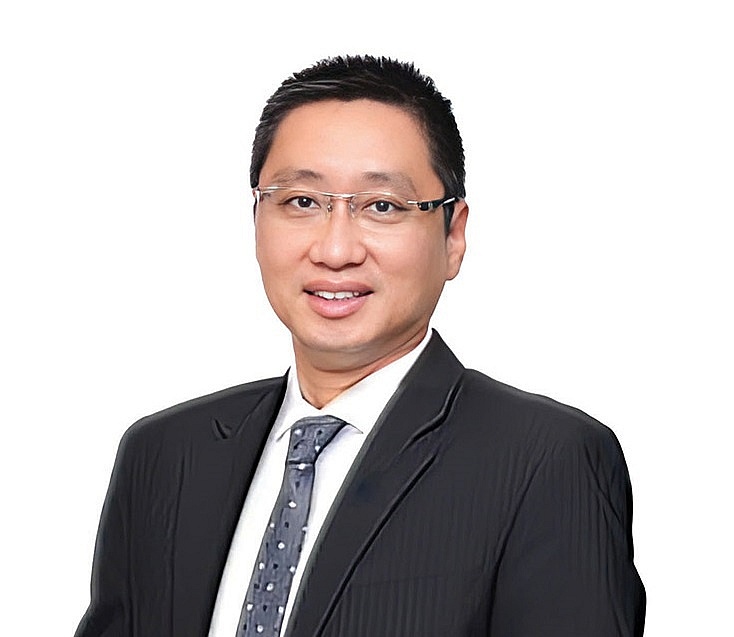 |
| Tran Nhat Quang, real estate development advisor |
However, with the early commencement of three related laws in August, the Vietnamese government has raised strong hopes for social housing developers. Various regulations have been enacted with a remarkable improvement in comparison with previous ones.
To avoid the common misunderstanding, there are two types of social housing projects. Firstly, in each commercial housing scheme (with size from two hectares in special urban and grade I cities, or from five ha in grade II and III cities), investors must allocate 20 per cent of the total area for social housing. Secondly, if they choose to develop a pure social housing project, they are allowed to allocate 20 per cent of the total area for commercial housing. In this article, we will focus on the second type.
Our research pointed out three key improvements in the Law on Housing in comparison to the previous law. Developers still receive a land use fee exemption, but they no longer have to wait for the calculation of this fee.
The fixed profit margin of 10 per cent is only for the social housing subproject. Previously, such margin has been applied for the entire venture. If developers increase the selling price of commercial products, they have to reduce that of social houses to maintain the overall 10 per cent margin.
Besides 10 current entities eligible for incentive policies, two more groups (students and enterprises/cooperatives inside IPs) have been added in the new law. In addition, every province or city has issued supportive measurements, such as Haiphong with the all-in-one social housing development concept, or Binh Duong with a model of 30 sq.m apartments at $6,000 in selling price.
It can be said that the new laws have correctly addressed the concerns of foreign enterprises and bring various benefits to affordable housing developers, both domestic and international, by a faster development process. Foreign developers can get rid of waiting time for the land use fee calculation, sometimes up to five years, which can significantly speed up the project timeline. This change directly makes the overall process more efficient and attractive.
Profitability will be improved remarkably. The new regulation allows better financial planning and higher returns on the commercial part of the venture. In exchange, developers have to pay land use fees for the areas to be used for commercial products. However, they can fulfil this duty and build the social part simultaneously.
Later, when the community has been established with numerous residents, they can build areas for commercial customers. In this way, developers face fewer risks because they can quickly fill both subprojects while gaining much better profit and faster cash flow.
Market access is expanded. The inclusion of two new groups – students and workers within IPs – is especially useful since land banks in the parks are plentiful and the owners are willing to allocate land for social housing development to attract tenants. With the enlargement of incentive policies, the potential demand for social housing is expected to boom, leading to greater occupancy rates and more consistent revenue streams.
Last but not least, Vietnam’s cities and provinces are currently competing to draw in investment to their social housing plans. The appearance of foreign developers could be another key success factor to the project, guarantee to homebuyers and achievement to local authorities. Given all the advantages, developers may apply for better privileges, especially with other forthcoming commercial schemes.
With Vietnam’s comprehensive strategy of delivering at least one million social houses by 2030, coupled with the new legal reforms, there has never been a better time for foreign developers to enter this emerging market where demand consistently outstrips supply. The changes in the law address critical concerns around profitability, development timelines, and market absorption for social housing.
By entering this market now, foreign developers can fulfil the three-pronged goals of generating reasonable profit in a sector with significant growth, proactively contributing to corporate social responsibility goals, and securing a better foothold in the real estate industry. The door is wide open – now is the time to step in and be a part of Vietnam’s new horizon in real estate development.
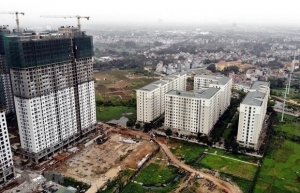 | Social housing needed to boost capital in real estate Amid a gloomy real estate market, experts have pointed out that the affordable housing segment is the key to mobilising capital. |
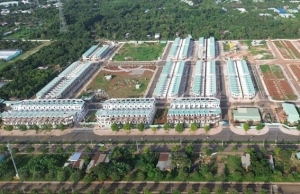 | Dong Nai eyes 10,000 units of social housing by 2025 The southern province of Dong Nai targets some 10,000 units of social housing built by 2025, the provincial Department of Construction said at a meeting on March 21. |
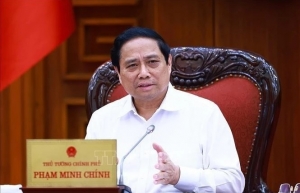 | PM emphasises need to diversify resources for social housing development Prime Minister Pham Minh Chinh has emphasised the need to diversify resources for social housing development, from the State, the public, society and financial institutions, in order to provide support for both sellers and buyers. |
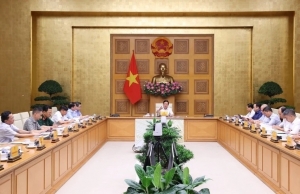 | Deputy PM demands minimising procedures for social housing projects The Ministry of Construction (MoC) has been demanded to coordinate with other ministries and sectors to minimise processes and procedures for implementing social housing projects. |
What the stars mean:
★ Poor ★ ★ Promising ★★★ Good ★★★★ Very good ★★★★★ Exceptional
Related Contents
Latest News
More News
- Construction firms poised for growth on public investment and capital market support (February 11, 2026 | 11:38)
- Mitsubishi acquires Thuan An 1 residential development from PDR (February 09, 2026 | 08:00)
- Frasers Property and GELEX Infrastructure propose new joint venture (February 07, 2026 | 15:00)
- Sun Group led consortium selected as investor for new urban area (February 06, 2026 | 15:20)
- Vietnam breaks into Top 10 countries and regions for LEED outside the US (February 05, 2026 | 17:56)
- Fairmont opens first Vietnam property in Hanoi (February 04, 2026 | 16:09)
- Real estate investment trusts pivotal for long-term success (February 02, 2026 | 11:09)
- Dong Nai experiences shifting expectations and new industrial cycle (January 28, 2026 | 09:00)
- An Phat 5 Industrial Park targets ESG-driven investors in Hai Phong (January 26, 2026 | 08:30)
- Decree opens incentives for green urban development (January 24, 2026 | 11:18)

 Tag:
Tag:




















 Mobile Version
Mobile Version